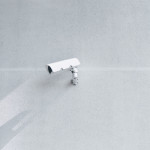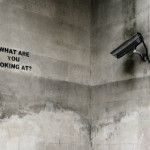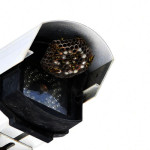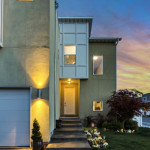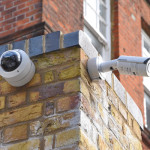Why Choose Wireless Security Systems?
Protecting your home from possible intruders is a high priority for most these days. When it comes to security systems, the debate between wired or wireless can be a tough decision. Both types offer advantages and disadvantages, with wired systems often seen as more reliable and wireless as more convenient. It really comes down to your own individual security needs and which type of system better suits these. Because wireless security camera systems are more advanced, they seem to be more appealing. Here we’ll review some of the important benefits of wireless security systems.
- Better Security
Wireless security systems offer better protection against intruders than wired security systems. Since wired systems use the telephone line or internet connection, if one or both of these are down, so is your security system. Wireless systems use more reliable cellular connections, and thus, the alarm will still be triggered via the dedicated cellular service or the batter powered backup system.
- Easy Installation
Most wireless systems are usually plug and play or DIY and can be set up in under 30 minutes, making installation of these systems and equipment easy and convenient. Wired systems require professional installation that takes longer to set up and test to ensure proper installation and functioning.
- Remote Surveillance
Wireless systems often provide other functions, such as controlling lights and locking and unlocking doors. These tasks can be managed remotely via an app installed on your smart phone or device.
- Mobile
Because they are easy to install, wireless security systems are also easy to uninstall and relocate. This is helpful when you are moving or even when you need to expand your system.
Although these seem like great advantages, they may not be right for you. As mentioned, it is important to evaluate your own security needs to better understand which type of system will work best for you. If you need help deciding, please feel free to contact us at 888-203-6294. You may request a free quote or schedule a site survey. Browse our comprehensive stock of affordable security solutions online at SecurityCamExpert.com and connect with us on Facebook, Google+, Twitter, LinkedIn and Pinterest.
Security Cameras: Common Positioning Mistakes
When security cameras are installed and positioned properly, they can provide effective security and video footage to protect your property. However, simple mistakes when implementing a security system can negate its effectiveness. To maximize your security systems performance and efficiency, be sure to avoid these common security camera mistakes.
- Multitasking
Try not to assign too many tasks to a single camera, as these will likely be executed poorly. Choose a single goal, such as capturing a face, a license plate, or general coverage, and optimize the placement and settings for that goal.
- Height
While the highest point of your property may seem ideal to capture a wide viewing range, it will not provide detailed images for identification. You want to place cameras high enough to deter tampering and vandalism while still finding a balance between the ultimate goal, the effective range, and number of cameras you are employing. This is why careful planning and calculations are crucial.
- Wide Dynamic Range
Doorways and windows are prone to an imbalance of light distribution, and, therefore require Wide Dynamic Range (WDR). Without it, you may not be able to capture a decent image unless the camera is in the proper angle or the person looks directly into the camera. Be sure to choose the right features for the appropriate locations and environment.
- Fixed Vs. PTZ
Because of their abilities, PTZ (Pan/Tilt/Zoom) cameras tend to be more appealing to customers. The problem is that after taking advantage of the features, the camera is hardly ever returned to its “home” location, and thus, is left focusing on less important areas. While they can be helpful tools in various situations, PTZ cameras are better used in conjunction with fixed cameras. That way, fixed cameras will always be focused on the key areas while the PTZ cameras can monitor the surrounding areas or points of interest as necessary.
- DVR/NVR Placement
Protecting your equipment is ever important, but sometimes, users leave the central brains of the systems as an afterthought. Be sure that the placement of your DVR/NVRs is both secure and efficient for your system.
- Lighting
You need to consider lighting, especially if you need to capture video overnight. Aside from night vision, be mindful of the available light in your camera locations. Be sure not to mount cameras too close to bright lights, which can disrupt the view.
- Masking High Traffic
It is important to adjust and program each device for a maximum balance of capturing required information and maximizing storage returns. If this is neglected, you may cause your DVR/NVR to shorten, thus limiting video retention.
- Proper Retention Calculation
Choosing a system that does not allow for customization of video retention time will limit your security system’s flexibility. Instead, look for systems which will allow you to modify your storage options based on your individual needs.
Build your ideal video surveillance system with us! Visit SecurityCamExpert.com to browse our stock or call 888-203-6294 to discuss your options. You can also connect with us on Facebook, Google+, Twitter, LinkedIn, and Pinterest.
Maintenance Tips For Your Security Camera System
Keeping your security camera system in good condition and running sufficiently is very important. A routine system maintenance schedule will ensure you are getting the most out of your system. Here are some smart practices to consider when it comes to maintaining your security system.
- Semi-Annual Inspections
You want to inspect both your indoor and outdoor cameras for any signs of corrosion and replace any connectors that show signs as this can cause your equipment to short out. Power supplies should be inspected to ensure that your system hasn’t lost power due to tampering, burn out, natural disasters or other unexpected events. If you have a UPS, make sure the battery is fully charged and does not show any warning lights.
- Clean Camera Lenses
Check your security cameras lenses for dust, smudges, water spots and other elements. A dirty lens can render your camera useless because the video and image quality will be compromised.
- Check Security Camera Positioning
Evaluate your camera positioning and adjust accordingly based on your current surveillance needs. You also want to ensure your cameras have not become loose as this can interfere with recording quality. Jiggle the area to make sure there are no vibrations – tighten and adjust as necessary.
- Replace Malfunctioning Cameras & Parts
If you notice a decline in the performance of your security cameras, it is wise to replace them before they become completely useless. While you are inspecting your system, take note of any issues that need to be addressed (ex. broken parts). It is recommended that you purchase replacement parts or accessories from the same manufacturer or a trusted seller to ensure you are purchasing real parts. These usually have warranties and are less likely to deteriorate prematurely.
- Landscaping
Make sure your outdoor cameras still have a clear view. Be sure to trim all vines, bushes, trees, and other foliage around the cameras to prevent obstructions. In addition, you should make sure any animals (ex. birds, squirrels, bees) have not made a home near your cameras.
- Check Housing & Weatherproof Function
Although you enclose your cameras in weatherproof housing, you must make sure that the housing has not been compromised. Open the camera housing to check for water, condensation or dirt, to confirm that your housing is still protecting your equipment. Furthermore, too much sunlight or water exposure can damage your cameras, thus protecting your cameras with an encasing or small shed is advised (especially if your cameras are not designed to withstand these elements).
- Check Cable Connections
When your security cameras stop working properly, more often than not, it comes down to loose connections or worn out cables. Examine all of your cable connections, including those connected to your security cameras, DVR, and monitor, for any cables that show signs of wear and tear. Address any potential issues to ensure your cables and equipment are securely connected and receiving power.
- Save The Manual
When you purchase and install equipment, you should receive a manual – store this in a safe and accessible place. You can refer to your manual to troubleshoot any issues before calling a professional (which can save you money in the long run).
Keeping your security system up and running protects your investment, your property, and you. Aside from your own semi-annual inspections, you may want to have a professional evaluate your system annually. This can help maintain the integrity of your system and they can advise you on possible upgrades or share helpful tips.
If you’re looking for affordable security cameras and surveillance equipment, please visit SecurityCamExpert.com. Browse our selection online or inquire about site surveys, installation services, or request a free quote by calling 888-203-6294 today! You can also connect with us on Facebook, Google+, Twitter, LinkedIn, and Pinterest.
Tips For Improving Your Home Security System
Home security camera systems help home owners protect their property and loved ones. They provide an extra set of eyes to monitor your home whether you are at home or away. Because of the financial investment, it is important to ensure that everything is working properly.
There are many ways in which you can optimize your surveillance cameras to get the most out of your security system. Here are a few smart security tips to improve your system.
Use Motion Detection
A security camera that is recording everything all the time sounds good in theory, but will require a large amount of memory and power. It will also be more difficult to sort through the mundane footage to find what you are looking for.
Thanks to motion detection, your camera does not have to record all the time. Motion detection enables your camera to start recording when activity in the field of view triggers the sensor. This means you will not need to worry about running out of storage space and makes it easier to sort through your recordings.
Consider Location
Choosing the right location for your security cameras is crucial. Be sure to adjust the angle of your camera to maximize your field of view and ensure that obstructions, such as trees or bushes, do not block the camera’s view.
Other Home Security Solutions
Although security cameras are important, they cannot do everything. Pairing your security camera system with a high quality and reliable alarm system can increase your home security overall and may even help with insurance discounts.
Multiple Cameras
While an outdoor security camera is common, often times, one camera is not enough. If there’s only one security camera present, it’s likely that burglars will work around that. You want your security cameras to monitor high traffic areas and points of entry (ex. front door, back door, first floor windows). That way, you get more comprehensive video surveillance should you become a target for home invasion.
Proper Maintenance
You can’t just set it and forget it when it comes to your surveillance system. Keeping your cameras clean and any potential obstructions at bay will help maintain the performance and effectiveness of your system. Skipping routine maintenance checks may cause your cameras to miss important moments.
Do you have any other home security tips? Share with us on Facebook, Google+, Twitter, LinkedIn, and Pinterest.
For a great selection of affordable security cameras and CCTV surveillance camera systems, please visit SecurityCamExpert.com. For more information about our installation services or to request a free quote, please call 888-203-6294.
Home Security Misconceptions
When it comes to home security systems, there are many different measures to can take to protect your property. Unfortunately, some homeowners have false impressions about home security, leaving them at risk. To ensure that you are safeguarding your home and loved ones properly, review these common misconceptions about home security.
- Home security is too expensive.
The security market has grown over the years, offering a wide range of security and surveillance options suitable for any budget. In addition, some insurance companies offer discounts for home security systems, thus increasing your savings and the value of your system.
- Your neighborhood is already safe.
Even the safest neighborhood can become a target. Protect your home from possible intruders, vandals, or even arson.
- I have a dog.
While pets can act as a security measure, they can also become a liability. Your pet could be injured during a break-in or may even be stolen. And while there are stories of pets saving their owners from house fires, they cannot protect your home and valuables from fire damage.
- Hardwiring my home is difficult.
Even older homes can be wired with a modern home security system. Whether your home is old or new, we can wire your system. Contact SecurityCamExpert to learn more or request a free quote.
- Alarm systems are unreliable.
Since inception, alarm system technology has advanced, minimizing false alarms and improving overall performance. Because alarm systems use unique radio signals, interference is minimized, thus enhancing reliability.
- Intruders can outsmart an alarm.
If your alarm is not installed properly, this may be likely. But modern alarm and security camera systems are so advanced, burglars would not know where to start. Also, the more complex your system, the harder it will be to disarm.
- My neighborhood watch program keeps us safe.
The neighborhood watch does not operate around the clock. When they are not watching, your home is vulnerable to potential dangers.
- Insurance can replace my stuff.
Insurance may replace what is lost, stolen or damaged, but they cannot restore your peace of mind after a home invasion. A home security and alarm system can help you rest easier.
- I use expensive lock systems in my house.
Locks are only one layer of a comprehensive security system. These locks can be broken or bypassed with enough determination. Should these become compromised, you should have backup security measures in place.
- Authorities cannot respond in time anyway.
Response times may vary, however, police and other emergency responders can respond to alerts in a matter of minutes.
As you can see, you can make all the excuses in the world, but the facts remain the same – a solid home security system can help protect you and your loved ones. Ditch these misconceptions ad shop our selection of home security systems today! Visit us online or call 888-203-6294. You can also connect with us on Facebook, Google+, Twitter, LinkedIn, and Pinterest.
Common Outdoor Security Camera Issues
Outdoor security cameras act as your first line of defense against potential burglars. The presence of outdoor security cameras alone can act as a deterrent and they can provide you with evidence should anything happen. Because they are placed outdoors, these security cameras are susceptible to possible dangers which may compromise your security system. Here are a few outdoor security camera risks and how to safeguard your security equipment.
Vandalism & Theft
Unfortunately, to cover their tracks and eliminate possible evidence, thieves may resort to vandalism and theft.
In order to protect your equipment, you will want to choose vandal-proof security cameras or CCTV cameras with metal housings or covers. These not only make it harder for them to be stolen, but they also help to keep your security camera clean.
You should also consider the placement of your security cameras. Installing outdoor security cameras where they are visible yet out of reach will help to maximize their effectiveness and reduce the risk of damage.
Lighting & Thunderstorm
Though it may seem highly unlikely, there’s still a chance your security equipment may get struck by lightning, especially in areas where thunderstorms are common.
Because metal can be highly conductive, avoid mounting your cameras to a metal. Also, be sure that your CCTV or PoE security system is grounded properly. This can minimize damage by redirecting the lightning current into the earth ground.
In addition, employing lightning surge protectors prevents voltage spikes by blocking voltage that exceeds specific thresholds and instead directing the excess into the outlet’s ground line.
Should the thunderstorm result in power outage, UPS (Uninterrupted Power Supplies) units will provide reliable backup power. They will even work if you unplug all system, cable, modem and antenna connections during a thunderstorm.
Hackers
Hacking is a big concern for network IP cameras, as hackers can possibly jam the operating device or decrypt your safety code.
In these cases, you will want to boost your network security with WPA2 (Wi-Fi Protected Access II) security protocol. You should also change your passwords frequently and make your passphrase complicated.
Firmware
In addition, updating firmware regularly for your IP security cameras is key. Some may be hesitant to perform this task as it can be inconvenient, however, these updates often contain patches for recently found loopholes or vulnerabilities that may threaten your system.
Be sure to update your firmware every few months, or check the product website to ensure you are using the latest firmware version. Also, remember to read the information carefully before upgrading.
Spider Webs or Bugs
If you employ IR security cameras outdoors and under eaves, they are likely to attract nocturnal bugs and insects that are naturally drawn to lights. Unfortunately, bugs and spider webs can compromise image quality and may even trigger false alarms from motion sensor cameras.
These issues can be combated with regular cleaning and maintenance of your outdoor security cameras. Using natural insect repellents (ex. citrus, eucalyptus, lavender, peppermint) are reported as very effective in keeping spiders away. In addition, you may use spider repellents, contact sprays, aerosol sprays and web eliminators around the camera (not directly on the lens for obvious reasons). Lastly, if you reduce the motion-detection sensibility accordingly, you will reduce false alarms.
Extreme Weather Conditions
You may worry about the performance of your security cameras if you live in areas that experience extreme and inclement weather conditions (ex. freezing winters, sweltering hot summers). Luckily, security cameras come with an IP (ingress protection) rating that determines their ability to sustain harsh weather. For example, an outdoor security camera with IP rating 66 is also known as completely water-proof (can withstand solid matter and liquid, such as dust and rainwater respectively).
Reflection Of Lights
Beware of pointing your outdoor security cameras at reflective surfaces (ex. ponds of water, glass panels, car windows) as it will cause lens glare and obstruct viewing.
To avoid this, place front door and back door security cameras outside and out of reach. Also, adjust your camera field of view to shy away from potentially reflective surfaces.
Fogging, Clouding, Or Condensation
While security cameras are often assembled to be sealed-up and air-tight to prevent moisture seeping into the lens, sudden changes in temperature may cause fogging.
This issue is common in the early morning and will sometimes go away on its own. If the problem persists, you may want to consider placing a packet of silica gel inside the housing case. Also, regularly wiping the outer lens covers with a micro-fiber cloth will help protect your cameras.
How do you maintain your outdoor surveillance system? Share your tips with us on Facebook, Google+, Twitter, LinkedIn, and Pinterest.
To shop our selection of outdoor security cameras, CCTV cameras, IP surveillance systems, and more, please visit SecurityCamExpert.com. Looking for a free quote? Call 888-203-6294 today!
Home Security Mistakes & Tips
Making mistakes when it comes to your home security can compromise your safety, leaving you vulnerable to burglary and theft. When choosing the best home security system for you, avoid making these common security mistakes and ensure that you properly safeguard your home and loved ones.
Mistake: Buying The Wrong Home Security Systems.
There is no “wrong” home security system, however, what works for one person may not work for you. This is precisely why there are various types of security systems on the market.
In order to choose the best system for you, do your research. You want to look at different reviews from reputable sources. Search the security system you are eyeing, or the type of system you’re looking for. In addition to reviews, pay attention to any complaints from real buyers that you may come across. There may be legitimate issues that you should know about before making a purchase.
Also, these are some important features you should consider when shopping for a security system:
- Remote monitoring
- Real-time notifications
- 911 & emergency services
- Input capacity
- Ease of installation
Lastly, to help you make the right decision, and possibly save you time, you should speak with a security professional. With expert knowledge and experience under their belt, a security professional will have a better idea of which type of security will best suit your needs.
Mistake: Not Testing Your Configurations.
It is rare that one home security system is enough for all your home security needs. For added protection, some components to consider may include:
- Indoor and outdoor cameras
- Motion sensors
- Smoke detectors
- Carbon monoxide detectors
- Glass break detectors
- Door and window sensors
- Freeze sensors
- Water sensors
- Driveway sensors
Of course, these are just some of the many components you may or may not want to add to your system. Whether you have one security camera or 20 different cameras and sensors, you should test all of them to ensure proper configuration and performance. For example, you may not know that your camera is poorly positioned or that your alarm system was not properly activated.
Try simulating a break-in with a friend, family member, or your pet to determine the capabilities of your home security system. Most criminals are seasoned vets so they probably know how to bypass one of more components of your system, thus having more aspects can help to ensure they are stopped.
Mistake: Lack Of/Poor Maintenance Of Home Security System.
Your security system should be maintained on a regular basis, whether it’s weekly, monthly, semi-annually or annually – do what’s best for what you need. Maintenance can involve various things such as updating software, changing batteries, changing faulty or defective parts, and more.
Professional Maintenance
Professional maintenance can be done annually or semi-annually. You may want to check if your vendor offers any maintenance packages in the service contract. If they don’t, you can enlist the services from a home security inspection company.
The services typically consist of the following:
- Repair or replace broken parts of your home security system
- Test the control panel and all other components of your home security system
- Check that signals are sent to and received by the monitoring center
Professional maintenance ensures that there’s no guesswork in handling, fixing or replacing faulty components of your system.
DIY Maintenance
Your DIY checklist should include:
- Check/change exterior lighting to ensure clearer pictures or videos for your surveillance cameras
- Simulate intrusion to check if motion sensors will detect it or trigger the right alarm
- Test your control panel if it has a test model but if your system includes remote monitoring (which it should), inform the monitoring team to avoid starting a false alarm
- The National Fire Alarm Code requires annual inspection of residential household fire systems, but you can press the test button of your smoke detector to see if it’s functioning properly from time to time
Keep these tips in mind in order to avoid these critical mistakes when shopping for a home security system.
If you’re looking for quality CCTV surveillance systems and security cameras for smart prices, feel free to browse our stock online at SecurityCamExpert.com or call 888-203-6294 to speak with an expert today! Find the latest news and updates on our Facebook, Google+, Twitter, LinkedIn, and Pinterest pages.
Home Security Camera Placement Tips
When it comes to security camera systems, you can invest in the best, most advanced equipment, but choosing poor locations for your security cameras can render your system ineffective.
In order to choose the best placement for your surveillance cameras, you should consider the layout of your property and which areas need monitoring. Most home or business owners target high traffic areas and entryways.
Here are more helpful tips for installing your security cameras.
- The most commonly targeted entryways are the front door, back door, and first-floor windows, so be sure these are under video surveillance.
- In addition, a security camera at the front door can act as a digital peephole since you can access your live feed to see who’s at the door. You can place it above the door or window frame facing downward so that it covers the area a few feet in front of the opening. Or you can place it inside your home on the window sill overlooking the front yard.
- The type of camera will also help determine where it should be placed. Surveillance cameras with a focus range of around 45 to 75 degrees should be aimed at specific areas (ex. doorway, garage). Wide angle cameras should be placed where they can view 75 to 180 degrees without any obstructions. For security cameras that can rotate, be sure to check with the manufacturer for information on how much unobstructed viewing area is necessary.
- For surveillance cameras being installed outdoors, be sure they are waterproof, vandal proof, and have night vision capabilities in order to record overnight. Motion detection lights around the perimeter of your home can also help capture quality recordings as well as deter burglars from approaching.
- In addition, when placing security cameras outdoors, you want them to be visible yet out of reach. By installing them at least 9 feet above the ground, you decrease the likelihood of tampering, vandalism, or theft of your cameras.
Do you have any security camera placement advice or tips to share? Connect with us on Facebook, Google+, Twitter, LinkedIn, and Pinterest.
Shop our great selection of quality CCTV security cameras and surveillance systems for your home or business. Visit us online at SecurityCamExpert.com or call 888-203-6294.
Home Security For The Holidays
The holidays are here, and whether you’re hosting the festivities or going out of town, you want to make sure your home is secure. First and foremost, if you don’t have them already, you may consider installing a home security camera system. A home security system will alert you if and when your alarm system is triggered or motion is detected, and security cameras can record pertinent footage as necessary. Should these alerts indicate criminals are on or around your premises, you can quickly contact authorities. For those of you who will be away for the holidays, an empty home is prime target. You should employ measures to make it seem like someone is home. The following are some security tips and advice to safeguard your property and avoid being targeted by thieves.
Hire a house or pet-sitter.
If possible, and if you feel comfortable with it, hire an overnight house-sitter. Before hiring, be sure to do a background check. Depending on your needs and instructions, duties may include mowing the lawn, taking the trash out, shoveling the driveway, or feeding and walking pets. If you are not comfortable with a stranger staying in your home, you may want to enlist a trusted friend or relative to either stay at your home or stop in regularly to handle these tasks.
Put your mail/newspaper subscription on hold.
Nothing screams “we’re away” more than mail and newspapers piling up. Ask your post office to hold your mail or have someone collect and sort your mail daily. If you have a newspaper subscription, pause delivery or inquire about switching to an online subscription.
Make use of curtains.
As previously mentioned, for burglars, there’s nothing more alluring than an empty home. For small windows, you want to close the curtains to shield your home from prying eyes. But you also want to keep some curtains ajar as curtains closed all day and night may look suspicious.
Set up sensors and timers for lights and sprinklers.
Along the same lines, invest in timers and sensors that can turn on and off at random intervals or that you can control remotely. These can help with the illusion that someone is home and are more cost and energy efficient than leaving your lights on.
Unplug electronics.
Avoid any potential accidents by unplugging your electronics and appliances. That way you can rest easy knowing you didn’t accidentally leave something on.
Leave a radio on.
Much like the lights make it appear that someone is home, the sound of a radio will do the same. An inexpensive, battery-powered radio should suffice.
Turn down the doorbell volume.
Some burglars are bold and will go so far as to ring the doorbell to confirm whether someone is home or not. If you lower the volume of your doorbell, and possibly have a radio on, they might assume the homeowners just can’t hear someone at the door.
Don’t leave spare keys at home.
Hiding keys around your home never a good idea when you’re away. Be sure you’ve collected all your keys before you leave. If you worry about losing them while on vacation, leave them with a trusted family member or neighbor.
Double and triple-check your doors.
You want to check all your doors and windows and any other point of entry before you leave to ensure they are locked and secure. Be sure your locks are working properly. If possible, install two or three locks on your main and back doors for added security.
Light up your surroundings.
Keeping the exterior of your home well-lit will help to keep intruders away. Most like to sneak around in the dark so installing a few motion-sensitive lights around your home should deter them from approaching.
Be wary of sharing information.
Social media is a fun way to keep your friends and family up-to-date on what’s going on in your life. Unfortunately, thieves like to watch social media for any easy targets. Try to avoid announcing when you will be away, constantly checking in and sharing status updates about your trip, especially if your accounts are public.
Invest in a security safe.
A quality safe hidden in your home can keep your valuables (ex. jewelry, important documents) safe. A safe will reduce the chances of burglars making off with anything valuable. A secure combination can stall them until police arrive, and bolting your safe down will add extra security.
Don’t leave a portable GPS in the car.
These days, most cars have built-in GPS systems, but if you utilize a portable GPS, do not leave it in plain sight. This is especially important if you’re leaving your car at the airport or somewhere else. Often times, when thieves break into your car and access your portable GPS, they may figure out how to get to your unattended home.
Share your own home security tips with us and your peers on Facebook, Google+, Twitter, LinkedIn, and Pinterest!
For a great selection of security cameras and CCTV surveillance equipment, visit SecurityCamExpert.com. Call 800-203-6294 to speak with a representative and inquire about our free quotes and site surveys.
Text-To-911: What You Should Know
Imagine getting a notification from your security camera system that movement is detected in your home. If you are out of the house, you can check the feed and call 911. But what if you get the notification when you are home alone? You can try to escape, but if that is not feasible, your next best bet would be to lock yourself in a room and hide. In this situation, calling 911 could possibly give your location away, but what if you could send a text to 911 to discreetly summon law enforcement?
If you live in Pomona or elsewhere in the Los Angeles County, as of December 1, 2017, you are able take advantage of Text-To-911. This convenient option gives hearing and speech-impaired individuals, along with those in situations in which it is too dangerous to call 911, a potentially lifesaving option. But the Federal Communications Commission (FCC) reminds everyone to “Call if you can — text if you can’t“.
Here are the FCC’s guidelines for contacting 911:
- If you can, always contact 911 by making a voice call.
- If you are deaf, hard of hearing or speech disabled, and Text-To-911 is not available, use a TTY or telecommunications relay service, if available.
- If you send a text to 911 and the service is not yet available in your area, you will receive a bounce-back message advising “text is not available please make a voice call to 9-1-1” or use telecommunications relay service (for persons who are deaf, hard of hearing, or have a speech disability). Note: Bounce-back messages are intended to minimize your risk of mistakenly believing that a text to 911 has been transmitted to an emergency call center.
- Location accuracy varies by carrier and should not be relied upon. Be prepared to give your location.
- Text-To-911 service will not be available if the wireless carrier cannot ascertain a location of the device sending the message.
- Text-To-911 is not available if you are roaming.
- A text or data plan is required to place a text to 911.
- Photos and videos cannot be sent to 911 as they cannot be received at the 911 center at this time.
- Text messages should be sent in plain language and not contain popular abbreviations (SMH, LOL, ICYMI) or emojis, as they will not be recognized.
- Text-To-911 cannot be sent to more than one person. Do not send your emergency text to anyone other than 911.
- Text must be in English only – there is currently no language interpretation for text available (still in development).
- Remember that the FCC’s Text-To-911 rules do not apply to text messaging applications that do not support texting to and from U.S. phone numbers.
- Text messaging applications that only support texting with other app users or texting via social media are not required to support Text-To-911.
As we all know, texting can be extremely dangerous in certain situations, but in others, such as Text-To-911, it could save lives.
Protect your property with quality CCTV surveillance cameras and equipment from SecurityCamExpert.com. Browse our stock online or call 888-203-6294. Find us on Facebook, Google+, Twitter, LinkedIn, and Pinterest for the latest news and updates.
